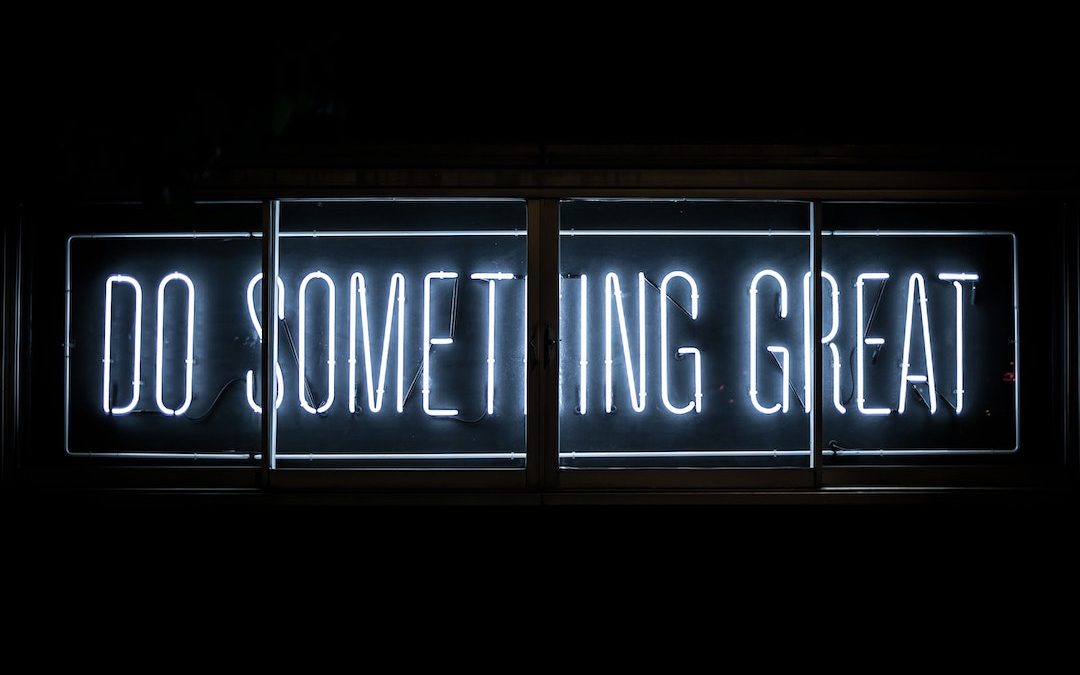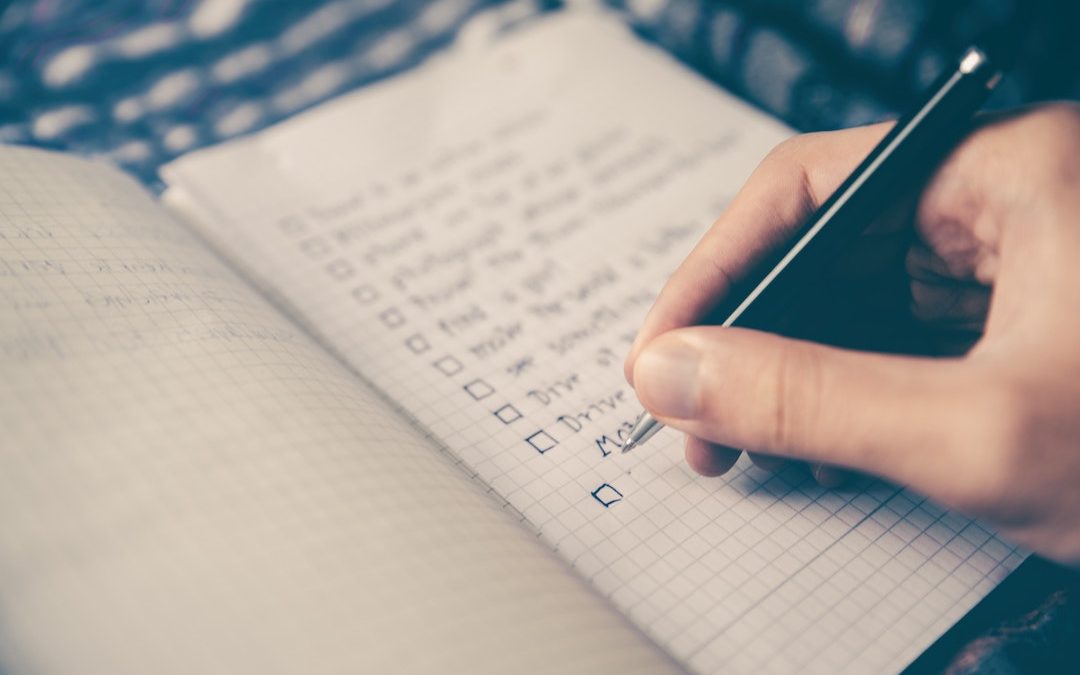
by Rachel Toalson | Wing Chair Musings
I’ve been pondering some deep things lately.
I recently finished Simu Liu’s memoir, We Were Dreamers: an Immigrant Superhero Origin Story. Liu is probably best known for his role as the Marvel superhero Shang-Chi. But you might also know him from the TV show Kim’s Convenience.
Liu’s memoir was an inspiring read about the life of an Asian immigrant in the acting world.
He was thrown into fame after his role in the Marvel universe. And that got me thinking: What must it be like to be a superhero? To be known as someone so great (even if it’s fiction)? To be seen and, consequently, known?
I know only a mere fraction of that notoriety. I’ve visited my kids’ schools and talked about my books. Occasionally, when I’m walking my young ones to school and I pass kids who have been in one of my talks, I’ll hear them whisper to their friends, “That’s the author, remember?” I find myself standing a little straighter, speaking more gently to my children, smiling a little more.
My mode of operation is to stay out of the spotlight. I like existing behind the scenes. But I also have big ambitions. I want to make a difference in the world. And to do that, I’m beginning to think you need to be known.
Trust me, I know how uncomfortable this can make some of us feel. When I get a big idea, like I should do a school visit and talk about compassion and love, I immediately think, But there are so many people who would do a much better job at it than I would.
There are so many who know more, have done more, who are more.
Really, when we think this way, we are just discounting ourselves. Negating our greatness. Succumbing to our insecurities.
“Be immeasurably great, be unfathomably deep,” said the ancient Chinese philosopher Han Fei.
How? I want to ask him. It often feels impossible.
But here’s the thing: We are all immeasurably great, in our own unique ways. Some of us are great speakers, some of us are great listeners—we need both. Some of us are great teachers, some of us are great learners—we need both. Some of us are great dreamers, some of us are great doers—we need both. And some of us are both.
We are all great. So that leaves “be unfathomably deep.” And that’s the real work. Because to become unfathomably deep, we have to reach out. We have to listen. We have to learn. We have to be seen, and, more than that, we have to be known. We become unfathomably deep in the relationships we have with each other, in the forgiveness and compassion and understanding and love and generosity we extend to each other.
I’m not sure there’s another way. Knowledge only takes us so far. Notoriety only takes us so far. Achievement only takes us so far.
We plant ourselves into the soil together, and that’s how we reach deeper and stand taller and survive the storms of doubt and insecurity to become a world-changer.
No one can do it alone.
I hope you have a wonderful month of rich and meaningful connection.
What one step can you take today to become “unfathomably deep?”
Here are some ideas:
1. Make a lunch date with a friend or partner
It’s hard to find the time, isn’t it? We’re all so busy with our own lives, it can seem practically impossible to schedule a lunch or breakfast date with a friend we haven’t seen in a while. My husband and I have been trying to find a day we can have some old friends over for dinner, and we’ve been searching for three weeks, trying to line up schedules. But it’s worth the pursuit. Not only do those relationships need nurturing, but we need the presence of other people, to help us remember we are made for each other.
2. Join a new group of like-minded people
I know, I know. I’m not a group person. But I do belong to a writing group of really lovely people. We meet every morning at 10 a.m., and we write and then we chat about our lives. One of the writers this week said, “Sometimes I feel like this is a good therapy session. There are things I tell you all that I don’t tell anybody else.” And I feel the same way. We all happen to be writers, which means we all understand the ups and downs of writing and publishing, and there is something really special about that. It’s important that we find places of belonging. Among like-minded people is one of the best places to do that.
3. Invest time in young people
I have a large family, which means any time we eat together it counts as a group gathering. We talk around our dinner table about silly stuff, like how to fit twelve grapes in your mouth, and we talk about serious things, like what it means to support a transgender friend going through a rough season of life. Sometimes my kids surprise me with the wisdom that comes out of their mouths. Childlike simplicity is often the best answer to complicated questions. We’ll never know whether or not it is if we don’t invest in the young people in our lives.

by Rachel Toalson | Wing Chair Musings
Back before I published my first book in the traditional publishing world, I had erroneous ideas about what publishing would mean. I thought, for example, that when the first book launched into the world, I would have “arrived.” I would have “made it.” I would have joined the world of…well, it was vague, what that glamorous world of Published Author looked like.
Nothing really changed. I had some launch parties, I signed some books, and I wrote my next book. I did not become famous (not that I would want to be famous—although name recognition, at least, would be nice). I did not move up an income bracket. I did not earn fewer arguments with and tantrums from my children.
I could have let myself feel disappointed. Let down. Betrayed by a dream I’d had since I was four and read my first book all by myself. But I moved on.
That’s the thing about goals: their end point keeps changing. Especially when they’re muddied up by unrealistic expectations.
Once upon a time, I had a goal to become a published author. Then I had a goal to be a doubly published author (meaning, two books out in the world). Then I realized I needed to start making better goals.
It’s good to have quantifiable goals—this many products sold, this many words written in a day, this grade on a test or a project, this much money saved in a month. You can “arrive” at the endpoint of these goals. The endpoint may not look anything like you thought it would. Maybe it looks exactly like you thought it would. But you’re still not finished, not by a long shot.
That’s part of our purpose in life—the unfinished business. The open-ended goals. “Just keep swimming,” as Dory says. Keep creating. Keep working to make the world a better place. Keep being you.
The hardest goals to define are the stretchy ones. Stretchy goals are the ones that keep changing. Growing with us. The ones that never seem finished, no matter how long or hard we work on them.
Stretchy goals can be like my “Become a better writer every book I write.” Or “Make better financial decisions.” Or “Eat cleaner today than I did yesterday.”
There’s this concept in yoga (or at least I was introduced to it in my yoga practice) of becoming one percent better. Be one percent better today than you were yesterday—in money decisions, with your work, when you’re eating, when you’re being a friend or a sibling or a parent. “One percent better” is a stretchy goal.
The best goals, in my opinion, are the ones that have no exact arrival point, either because the end goal keeps stretching or because the end goal is unquantifiable. Like the goal of improvement. How do you know when you have “arrived”? We will never be perfect.
It’s really more about the journey than the end goal, anyway. The journey to our goal is what shapes us and makes us who we are.
Rainer Maria Rilke, one of my favorite poets, famously said, “Live everything. Live the questions now. Perhaps you will then gradually, without noticing it, live along some distant day into the answer.”
We live the journey, and we might eventually find the arrival gate. Or not.
Some of my current “journeys” or “stretchy goals”
1. Fuel my body better.
As a person who has struggled with anorexia for most of my life, I don’t have a great relationship with food. I’m not sure if I ever will. But I keep this as one of my stretchy goals, because I might not ever be healed completely—many former anorexics struggle with food their entire lives—but that does not mean I’m not making progress along the journey. One percent better tomorrow than I was today—and if I slip up again, I start again, too.
2. A better relationship with money.
I worry about money. A lot. Part of this (or maybe most of it) stems from my childhood, growing up in a family that did not have a lot of money, sometimes needed government help, and almost never had extra for savings or spontaneous meals out—at least not until I was almost all grown up. This past, coupled with anxiety, means I stress about money more times than not. I want to work on having a better relationship with money—which, to me, means not worrying so much when a surprise cost pops up—because they’re always popping up. It means keeping a budget and yet not stressing over the numbers. It means saying yes to the spontaneous meal out every once in a while. One percent better.
3. Caring for myself better.
As a mom, I typically let myself get rundown trying to see to the needs of all my children. And then I rarely have time to recharge. But I am on a journey to find moments here and there when I can meditate, do yoga, or sit and read for two minutes, five minutes, maybe a luxurious ten minutes. The biggest part of this? Not feeling guilty for taking time to myself. One percent better tomorrow.

by Rachel Toalson | Wing Chair Musings
Everybody loves a celebration, don’t they?
The problem is, I often forget to celebrate.
This is terrible, you might be thinking. How in the world can a person forget to celebrate?
As someone who keeps a very meticulous calendar, it might even seem unbelievable that I forget to celebrate. And of course I don’t forget to celebrate my kids’ birthdays or the last (or first) day of school or every little amazing thing that happens in someone else’s life. There is always something worth celebrating when it comes to someone else.
But celebrating myself? Not so much.
I was recently reminded of this rather careless attitude of mine while talking to a friend. She hasn’t been to our Zoombie writing group for a while. When I asked her why she’d been missing, she said, “Well, I finished writing my chapter book and sent it off to my agent, and I just figured I’d celebrate for a while.”
I thought, When’s the last time I celebrated finishing a book? I thought, I usually just move right on, like it’s no big deal. (It’s a big deal. Writing 70,000 words over and over and over again? Seeing a project through to the finish? Making anything that adds value to the world? Those are all big deals.) I thought, I’m not even sure I properly celebrated getting a book deal.
I thought, What does a celebration really look like?
I don’t think I’m alone in this.
Celebrating yourself isn’t quite as easy as celebrating other people.
We should make it so.
Celebrations are uplifting. They’re markers of our hard work. We don’t work hard for the celebration, of course, but it allows us a moment to really take stock of the strength and fortitude and perseverance it takes to finish something, to share it with the world (or colleagues or teachers or friends), to give something back.
We can celebrate our hard work. We can give ourselves permission to acknowledge that while we came close to the edge of giving up (really, really close), we didn’t give up. We can celebrate the chapter written today, the newly perfected song lyric after so long feeling stuck, the second step of our project done and dusted, even if there are ten more to go.
We can celebrate in big, throw-a-party ways or tiny take-a-nap-during-this-work-session ways. It doesn’t really matter how we celebrate.
Celebration, I’m coming to understand, is a state of mind.
What would it look like if we turned a celebratory eye to the seemingly small, insignificant things of our world? We finally mowed the lawn after four weekends of having it on the to-do list. Celebrate! Our kid found his missing left shoe. Celebrate! We made it through the whole day without saying, “I was, like.” Celebrate!
I know these are mostly silly examples of small celebratory accomplishments, but I also often wonder now how much joy we might see if we looked at everything with celebratory eyes—and how much we miss when we don’t.
Here are some of my favorite ways to celebrate:
1. Watch a show or read a book.
Of course I’m always reading books for my writing career (because reading widely is one of the surefire ways to make you a better writer), but I also sometimes like to celebrate by taking half an hour or an hour to watch a favorite show. I’m currently watching Downton Abbey, a historical saga produced by the BBC (it was just taken off Netflix, but you can watch it on Amazon Prime as well). Because I don’t often take the time to watch shows, this really feels like a celebration when I do it.
2. Give myself a day off.
I’ve come to understand (or I’m starting to, at least) that days off are like celebrations in and of themselves for a person like me. I don’t often give myself days off, except for the occasional Sabbaticals I take to step away from projects and let my brain refresh itself. So a day off, or a half-day off, feels like a sort of celebration, especially when I can do something special with my friends or family. Which leads me to the last (and best) way (in my opinion) to celebrate.
3. Making new memories with family and/or friends.
I love sharing a special meal or having a small dessert party or buying (vegan) ice cream to have sundaes with my kids. Going out to a restaurant. Hosting a potluck. Seeing a movie in the theater. Visiting a park for a nature bike ride. All these things feel special and can be considered celebratory, with the right attitude and under the right circumstances (such as a finished manuscript or powering through a particularly difficult creative project or a week spent building a new habit like daily meditation).

by Rachel Toalson | Wing Chair Musings
I used to think I needed to do everything alone.
Everything from my personal life to my professional life. Maybe it was an aversion to asking for help. I still don’t like asking for help.
But over the years, I’ve come to understand that we’re not meant to do everything alone. Not even most things. Even more than that, I’ve experienced the wonder and joy of collaboration.
About a year ago, I began a couple different collaboration projects with some author friends. One is an author who feels stifled by plotting. She flies by the seat of her pants. I joined her in flying by the seat of my pants—a change to my regular brainstormed, organized plots. We are still working on our story, and I am having such fun writing it. Our characters are as different as we are—quirky, confident, and utterly delightful.
The other author is a plotter, like me. I had a spark of an idea for a fantasy story with a hard-hitting emotional core. We spent two hours brainstorming by Zoom. And what we came up with is so much bigger than I might have come up with myself.
There is truth in the saying, “Two brains are better than one.” If that’s a saying. I think it is. Maybe I made it up, though. (Probably not. There’s nothing new under the sun, right?)
That’s not even the whole of collaboration.
Every morning I also meet with a group of writers by Zoom. We call ourselves the Zoombies. We spend the first fifteen minutes of our time together talking about our lives. We spend an hour and fifteen minutes muting ourselves and working on our individual writing projects. And then we meet at the end of that time to discuss how our day’s writing went.
Sometimes we really do talk about how our writing session went. Sometimes we bring each other questions: What do you think about this plot point? What would you do in this kind of situation? Is the way I’ve handled this problem believable?
It’s so helpful to have that real-time feedback, to think with more minds than one.
We have a wealth of expertise and experience at out fingertips. Our friends, our colleagues, all the members of our family, have different ways of seeing the world and unique ways of approaching life and problems and solutions to those problems. I know a lot about writing, environmentalism, and managing squeezed-tight time. My husband knows a lot about technology, philosophy, and how to take an effective break and rest. We collaborate on a daily basis so I don’t have to learn how to fix a broken computer and he doesn’t have to learn how to edit our son’s ELA picture book project.
I even collaborate with my children. (You haven’t experienced real honesty until you’ve asked a 7-year-old, “What do you think of this story?”)
We think bigger together. So I’ve stopped thinking it’s “cheating” to collaborate, to bounce ideas off the people in my life. Instead, I am increasing my own brain power by inviting them into the circle. And I am waiting in the wings, to do the same for them when the time comes.
In the meantime, I get to grow closer to the people I respect, admire, and genuinely enjoy and love. We grow closer in our relationships when we ask for help.
A win-win all around, if you ask me.
I hope you have a fantastic month of collaboration with the people in your life.
Here are some of my favorite ways to collaborate with others:
1. Partner with someone on a creative project
My first novel, The Colors of the Rain, was originally written as photo responses. What I mean by that is a friend of mine, Helen Montoya Henrichs, with whom I used to work at the San Antonio Express-News collaborated with me on a creative project wherein she would send me two photos a week, and I would write poems about those pictures. I had the idea to connect the poems into a story, and my novel in verse was born. Collaborating like this with a different creative form can not only spark our creativity but also help set up a method of accountability. I held my friend accountable for taking creative photos every week. She held me accountable for making consistent progress on my story.
2. Brainstorm solutions with someone or a group of someones
This can apply to a creative project you’re working on or even as granular as a problem you’re dealing with in your life. The people around us have so much expertise and sometimes know more than we do. It’s also helpful to get different perspectives, since we all see things differently. A wise friend of mine has run a business, has a Ph.D. in the psychology of giftedness, and has lived a different life than I have. I can’t tell you how many times I’ve asked her life advice for something. It’s invaluable having two heads to brainstorm the solution to a problem.
3. Start a podcast with someone else
A podcast is a great form for engaging conversation. And when you do one with someone else, you learn about that other person, and you also might learn some things about yourself. My husband and I have a podcast for creative people, and every week we learn something new about each other, even though we’ve been married almost nineteen years. It’s been fun to discover new things about each other and ourselves.

by Rachel Toalson | Wing Chair Musings
Most days I pride myself on being an extremely disciplined person. I make my to-do list, I divvy up my time between tasks, I mark things off with a flourish and a self-congratulatory pat on the back. I manage expectations, I make lists and calendar entries for the smallest of things, I set intentions for every action and interaction (more on this in another month’s newsletter).
This is what it means to be a task-oriented person. And there is absolutely nothing wrong with being a task-oriented person.
But.
There is a dark side to this kind of personality.
A couple of weeks ago my second son celebrated his twelfth birthday. Once our sons reach middle school, we allow them the option to take a day off from school on their birthday—to spend however they want (within reason, of course). When my eighth grader took his day off last November, he spent the entire day live-streaming on YouTube while playing video games. That kind of day-long date with technology is not usually allowed in our home (my middle school sons get an hour of tech per day), but birthdays are yes days. As long as what they do doesn’t harm themselves, other people, or our budget, we try to say yes.
My second son chose a day full of activity. He asked my husband and me to join him.
I had so much to do—editing to finish, chapters to write, emails to send, things to read, research to do…on and on and on. A family dentist appointment had broken up the week, stolen two hours of my time, so I was already operating in catch-up mode, according to my to-do list.
Not only that, but my son’s birthday fell on a Tuesday, in the middle of a regular 36-hour fast for me. He wanted scones for breakfast and pizza for dinner, along with the cake I’d made him the day before.
“You’re going to eat today, aren’t you, Mama?” he said, after we sang “Happy Birthday.” He held up a lemon scone. “You have to taste this one.”
He knows I love lemon everything.
What could I say? I know what I wanted to say. No, I can’t join you today…I have so much to do, and I’ve already lost time this week. No, I’m not eating today; it’s a fasting day, and this is my routine and it will throw off the whole week if I do.
I agonize over discipline-disruptors like this. I think, What if I can’t recover? What if I keep getting farther and farther behind? What if this day off completely obliterates my motivation, which will obliterate my discipline, which will obliterate my forward progress?
It’s a little ridiculous when I see it laid out like that. When did discipline become synonymous with I must do it this way forever and ever and ever or else everything will fall apart?
My husband is the exact opposite. He has no problem shifting into “vacation” mode. He would probably live permanently in vacation mode if he didn’t have a job and family and responsibilities.
Something I’ve been trying to do this year is seize opportunities like this with both hands, as hard as it may be for me to let go of the things I need to do. Who knows how long this son will choose to spend his birthday with his mom and dad? Soon we’ll be replaced by friends. I want to hang out with him while he still enjoys our company.
So I did take the day off. We rode bikes to the neighborhood park, played an hour or so of tennis, worked on a puzzle, talked, went ice skating (his first time), and picked up his brothers from school together.
It was bliss.
And the next day? I got back to work.
Here is a thought exercise that often works for me when I find myself prioritizing tasks over my relationships:
Step one: Ask, If I take a day off, what might happen?
Most of the time the answer is nothing. Except you’ll probably have fun.
Step two: Ask, What might I miss if I don’t take a day off?
The answers vary, of course. We might miss building a deeper relationship with a friend or getting the adequate sleep we need to be productive the rest of our week or seeing our 12-year-old wipe out on the ice and get right back up with a laughing, “I’m gonna be sore tomorrow!” (Not as sore as me, son.)
Step three: Ask, What is more important: What might happen or what I’ll miss?
Sometimes what could happen might be worse—our job is compromised, we miss an important deadline, we leave someone in a bind. But many times what we’d miss (especially when it comes to relationships) is far greater than a hypothetical disaster.

by Rachel Toalson | Wing Chair Musings
Over the years, I’ve written many words and spent many hours of my time teaching about being kind. It’s so important to me, this idea of kindness, that every day, when my sons leave for school, I hug them tight, kiss the tops of their heads (with the exception of the one I can no longer reach—I get his forehead), and say, “I love you. Remember who you are: Strong, kind, courageous, and mostly my son.”
But you know who got lost in this kindness teaching?
Myself.
I don’t mean to say I’m not kind to people. I work exceedingly hard to be kind, even in my interactions with difficult people. I fail like everybody else, of course, because I’m not perfect and sometimes I’m tired and people can be, well, people.
When I say I got lost in this kindness teaching, what I really mean is I will bend over backwards to be kind to someone else, but I have no problem beating myself up for the smallest, most insignificant things.
Just this morning, I went out for my weekly half-marathon run. I’d had a terrible run yesterday, the slowest 15 miles I’ve logged, ever. A sore hamstring has been plaguing me for the last week (I refuse to consider it might be an injury). So I was already beginning my usually-enjoyable half-marathon with some negativity. Don’t make this one like the last one, I told myself. Pick up your cadence. Work hard.
As if I hadn’t worked hard on that 15-mile run.
My self-flagellation worked for a while. I logged faster miles than I usually do on a Saturday morning 13.1. But that sore hamstring paid the price.
It’s been a week exactly like that. I step on the scale every morning, a leftover from weight-loss days, a precaution against gaining anything that will make me unhealthy, turn my runs into miserable slogs, and make my clothes feel more snug than I’d like…but mostly that last one. All week, I fell short of my goal. All week, I looked in the mirror, analyzed, pinched, turned, wrinkled my nose. All week I told myself, You have to do better.
Distraction ruled my work days. My sons’ school was damaged in the Texas winter storm, and my four elementary children were shipped off to three different elementary schools, one more than thirty miles away. The school district recently voted to lift the mask mandate, so now we had quadruple the COVID exposure, with more than 50% of students not protecting their fellow students by wearing masks. I’d write, think about them, worry, wrestle my attention back, think about them, worry, check my email to make sure their teachers hadn’t sent anything of concern, write, walk around, write, worry. Why can’t you just concentrate? I told myself. Why can’t you still your mind like you used to and actually get something worthwhile done?
Not good enough. Those are the words I tell myself the most. That’s not good enough. Your effort isn’t good enough. You’re not good enough.
Do I do this to anyone else? Maybe, in subtle ways, I do it to the people I live with. My expectations of myself often bleed into my expectations of my sons and my husband.
But I have never done it to friends. Acquaintances. Strangers.
Why? Because they deserve kindness more than I do?
Why are we so hard on ourselves?
I know we’re tired. I know we have expectations that haven’t panned out, for whatever reason. I know we feel disappointed, angry, sad, scared, frustrated, unproductive, unimportant, maybe a little bit hopeless.
But that’s no reason to criticize, belittle, and beat up ourselves.
We deserve better. We deserve love and kindness, too.
I challenge you this month to do one kind thing (at least!) for yourself every day.
Here are some things I’m trying:
1 Loving-kindness meditation.
I lie on the floor and focus on my breath for a minute or so, then begin the mantra, May I be well. Maybe I be joy-filled. May I be healthy. May I be strong. May I be kind. May I be courageous. Maybe I be loving and kind. May I be safe. May I be at peace. I end the meditation sending the same thoughts to someone I love.
2. Daily nap.
Between my daily writing sessions, I set a timer for 25 minutes and nap. Even if I can’t manage to still my mind enough to actually sleep, I make sure I don’t beat myself up about it. It’s not wasted time; I’ve stilled my body and the outside world and listened to what’s in my mind and on my heart for 25 uninterrupted minutes.
3. The end.
At the end of every work day, I close my laptop and say out loud, My work is done. Now I can rest. Not only does this send a clear message to my brain that work time’s over—don’t open that laptop or check email again—but it also creates the space to know that what I accomplished during my work sessions was enough.
I’d love to hear what practices you might pick up for yourself.
May you be well. May you be kind and loving to yourself. And may you be at peace.







